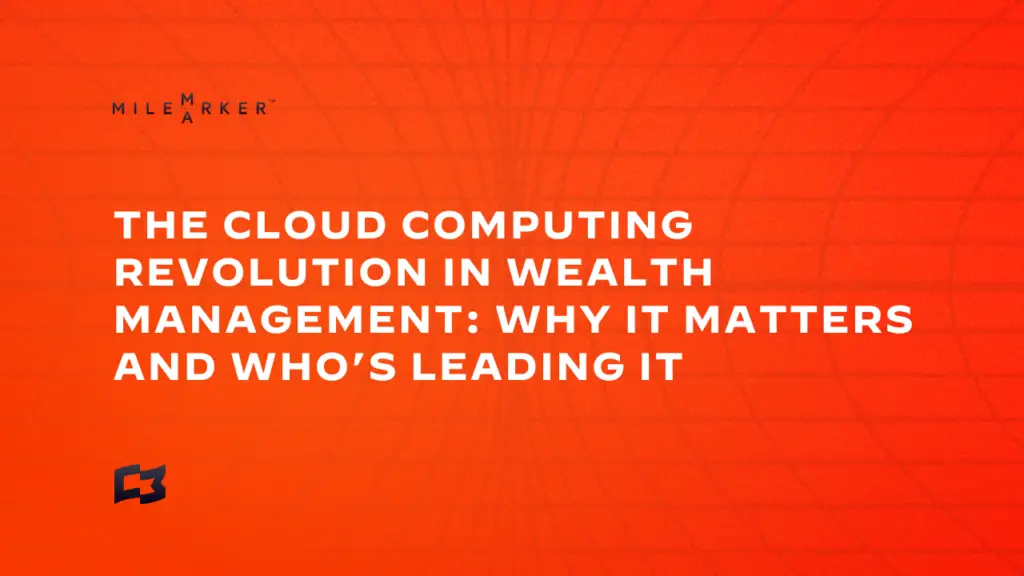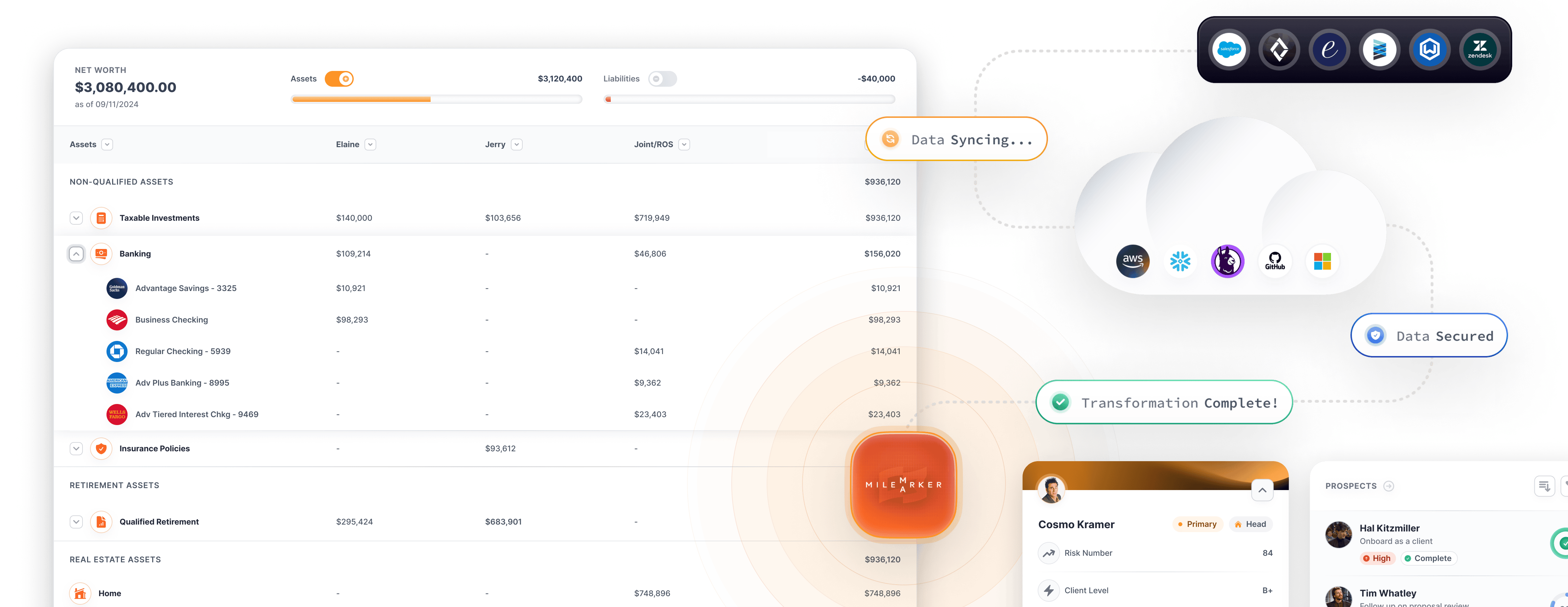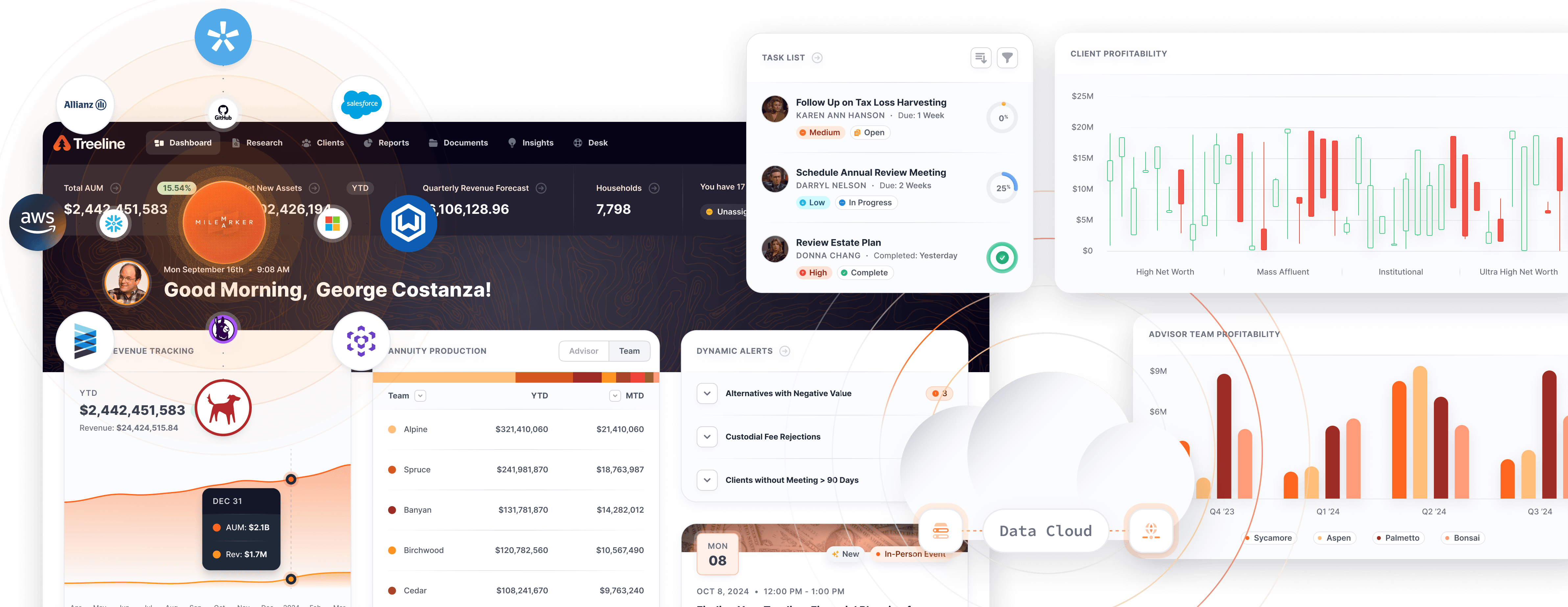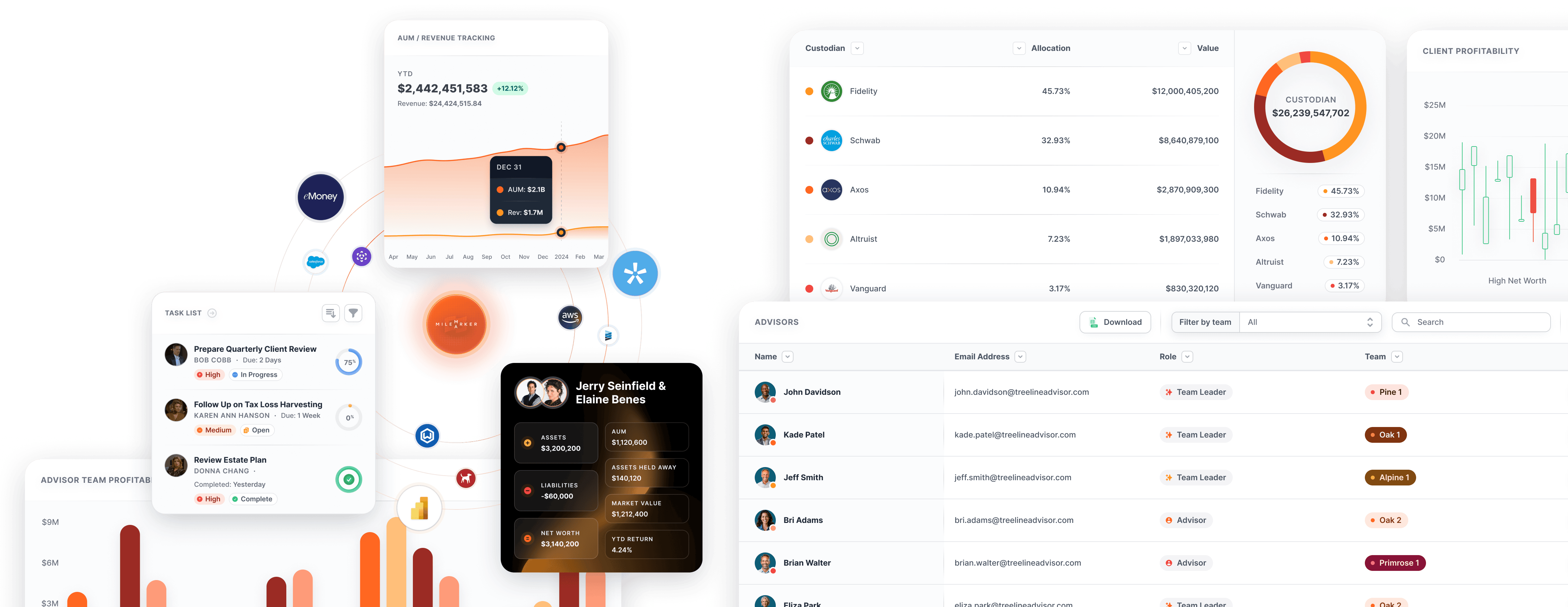The Cloud Computing Revolution in Wealth Management: Why It Matters and Who’s Leading It

The world of wealth management is undergoing a major shift—one that’s been quietly building momentum but is now impossible to ignore.
For years, firms have struggled with fragmented systems, siloed data, and complex integrations. The industry has been slow to embrace cloud computing compared to other sectors, but that’s changing—fast.
With recent announcements like Orion’s Snowflake integration, we’re seeing a clear signal: the future of wealth management is in the cloud.
And the firms that recognize this now will be the ones who win the next decade.
Why This Shift is Happening Now
For a long time, the industry’s approach to data was simple: store it, report on it, move on.
But the wealth management landscape has evolved. Data is no longer just for reporting—it’s the fuel that powers modern firms. Whether it’s driving automation, enhancing client experiences, or improving advisor efficiency, data has become a strategic asset.
And yet, many firms still struggle to:
• Access their own data without vendor restrictions
• Share insights securely across teams and platforms
• Integrate with newer technologies without massive costs and delays
Cloud platforms like Snowflake and Databricks are changing this dynamic. They offer a way to store, compute, and share data seamlessly—without the heavy infrastructure costs and security risks of traditional methods.
And with leading firms like Orion making big moves toward cloud-based solutions, the rest of the industry will follow.
The Simplification of WealthTech
One of the biggest benefits of this cloud shift? It simplifies the tech stack.
For too long, firms have had to add more tools to solve data challenges. More reporting tools. More integrations. More APIs. But instead of streamlining, this approach has often created even more complexity.
Cloud computing flips this on its head. Instead of relying on multiple vendors to “talk” to each other, firms can now:
✔ Store their data in a single, scalable cloud environment
✔ Provision access to the right people, at the right time, with the right security
✔ Eliminate the need for constant system migrations
This shift doesn’t just improve efficiency—it changes the game for how firms compete and innovate.
Who’s Leading the Charge?
The industry is splitting into two camps:
The Early Adopters
These firms are already moving their data infrastructure to the cloud, embracing platforms like Snowflake, and focusing on data-driven decision-making. They see technology as a strategic advantage, not just a cost center.
The Reluctant Holdouts
These firms are still dependent on outdated data models, legacy systems, and restrictive vendor contracts. They risk getting left behind as the industry shifts toward real-time, cloud-powered insights.
And this isn’t just about RIAs—asset managers, fintech companies, and custodians are all making big investments in cloud-based infrastructure to future-proof their businesses.
What This Means for the Future of Wealth Management
Wealth management is no longer just about managing money or running a financial plan.
To succeed in this industry, firms now need to be:
✅ A wealth management company – serving clients with personalized advice
✅ A marketing company – building strong relationships and trust at scale
✅ A technology company – leveraging data and automation to drive growth
Firms that neglect the technology piece will struggle to keep up with the pace of change.
The smartest firms are realizing that owning their data isn’t just about compliance—it’s about controlling their future.
Where to Go From Here
The shift to cloud-based data infrastructure is already happening.
The only question is: will your firm be ahead of it, or playing catch-up?
The good news? Moving to this model isn’t as complicated as it used to be. More fintech companies, asset managers, and RIAs are already making their data available in Snowflake—and doing it in a way that ensures security, accessibility, and scalability.
If your firm is still navigating siloed systems, messy data exports, and compliance headaches, now is the time to explore a smarter, simpler approach.
The future of wealth management is data-driven, cloud-powered, and built for flexibility. The firms that embrace this reality now will be the ones leading the industry in the years to come.















